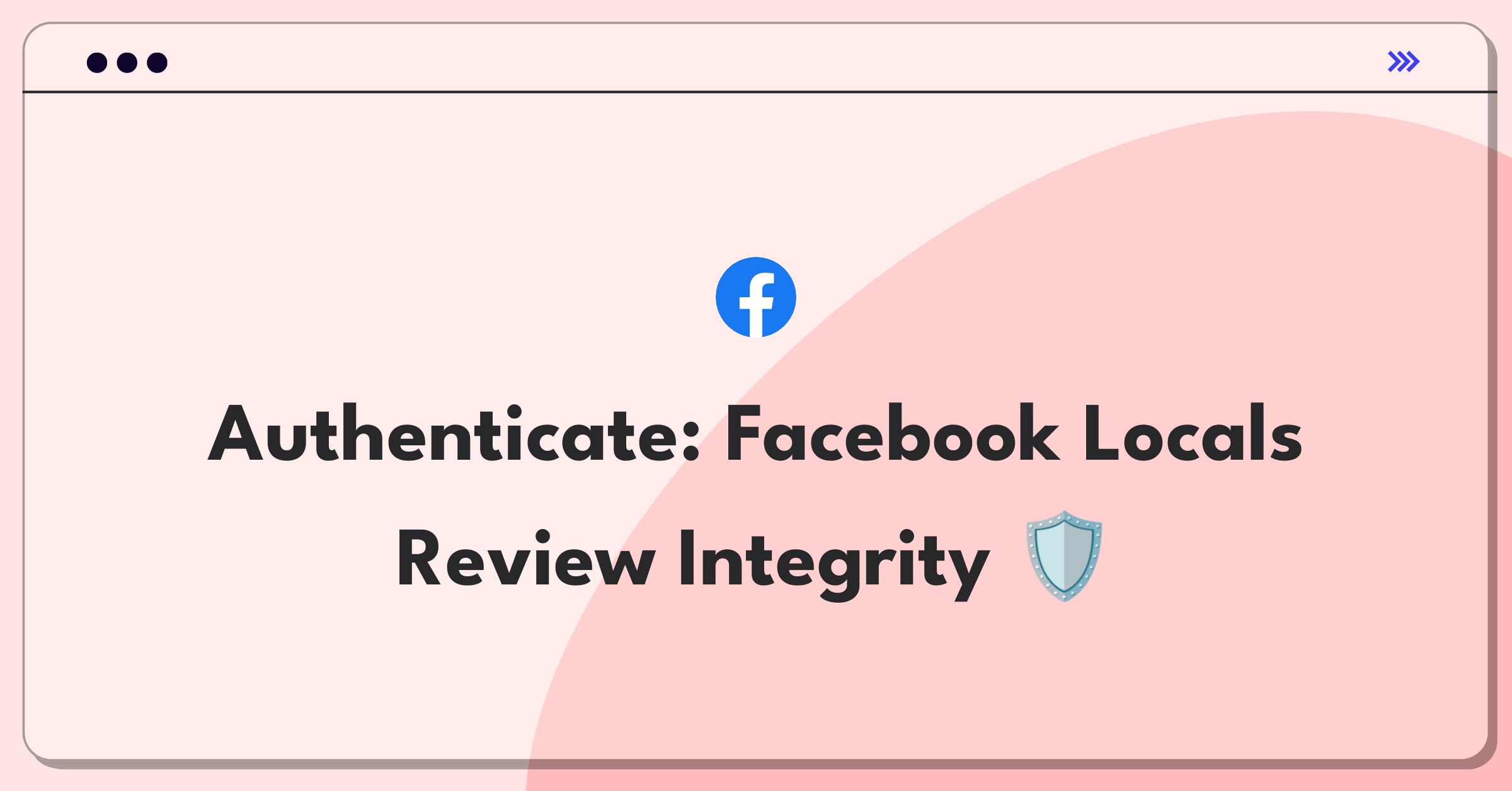Authenticating Reviews for Facebook Locals: A Technical Product Strategy
To authenticate reviews for Facebook Locals, we'll implement a multi-layered verification system combining user identity validation, behavioral analysis, and machine learning algorithms to detect and prevent fraudulent reviews while maintaining a seamless user experience.
Introduction
The challenge of authenticating reviews for Facebook Locals is critical for maintaining the integrity and trustworthiness of the platform. This technical product problem involves developing a robust system that can verify the authenticity of user reviews while scaling to accommodate millions of users and businesses. Our solution must balance security, user experience, and performance to ensure that Facebook Locals remains a reliable source of information for local businesses and services.
I'll address this challenge by:
- Clarifying technical requirements
- Analyzing the current state and challenges
- Proposing technical solutions
- Outlining an implementation roadmap
- Defining metrics and monitoring strategies
- Addressing risk management
- Discussing long-term technical strategy
Let's begin by clarifying the technical requirements to ensure we have a comprehensive understanding of the problem space.
Step 1
Clarify the Technical Requirements (3-4 minutes)
"Looking at the current Facebook Locals architecture, I'm assuming we're dealing with a distributed system handling millions of reviews daily. Can you confirm if we're working with a microservices architecture or a monolithic system for the reviews component?
Why it matters: This impacts our approach to implementing new authentication mechanisms and scaling the solution. Expected answer: Microservices architecture Impact on approach: We'd focus on enhancing or adding new microservices for authentication rather than refactoring a monolithic system."
"Considering the scale of Facebook's user base, I'm thinking about the performance implications of additional authentication steps. What are our current latency requirements for review submission and display?
Why it matters: Determines the performance budget for any new authentication processes. Expected answer: <500ms for submission, <200ms for display Impact on approach: We'd need to optimize authentication processes to fit within these constraints or consider asynchronous processing."
"Given the sensitive nature of user data involved in review authentication, I'm curious about our current data privacy and compliance standards. Are there specific regulations like GDPR or CCPA that we need to consider in our solution?
Why it matters: Influences our data handling and storage strategies for authentication information. Expected answer: GDPR and CCPA compliance required Impact on approach: We'd need to implement data minimization and user consent mechanisms in our authentication process."
"Thinking about the integration with existing Facebook systems, I'm wondering about our current fraud detection capabilities. Do we have an existing machine learning infrastructure for detecting anomalies or suspicious behavior?
Why it matters: Determines if we can leverage existing systems or need to build new ML capabilities. Expected answer: Existing ML infrastructure available but may need enhancements Impact on approach: We'd focus on extending current ML models rather than building from scratch."
Tip
Based on these clarifications, I'll assume we're working with a microservices architecture, have strict performance requirements, need to comply with GDPR and CCPA, and can leverage existing ML infrastructure for our authentication solution.
Subscribe to access the full answer
Monthly Plan
The perfect plan for PMs who are in the final leg of their interview preparation
$99 /month
- Access to 8,000+ PM Questions
- 10 AI resume reviews credits
- Access to company guides
- Basic email support
- Access to community Q&A
Yearly Plan
The ultimate plan for aspiring PMs, SPMs and those preparing for big-tech
$99 $33 /month
- Everything in monthly plan
- Priority queue for AI resume review
- Monthly/Weekly newsletters
- Access to premium features
- Priority response to requested question


.png)